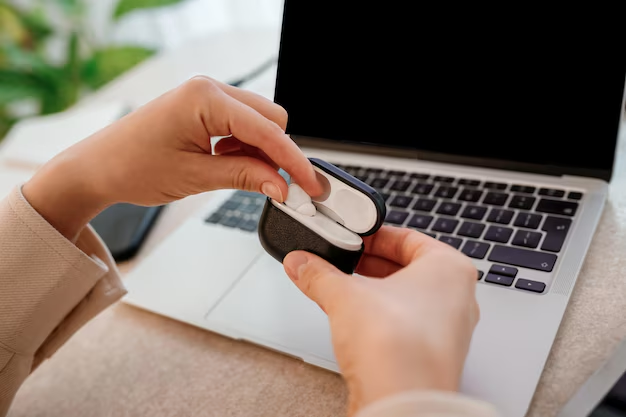Effortless Solutions: Easily Transfer Photos from Your iPhone to a Flash Drive 📱➡️💾
Whether you're trying to back up cherished memories or simply free up storage on your iPhone, transferring photos to a flash drive is a practical solution. You don’t need to be tech-savvy to do it either! This comprehensive guide explores simple methods to move your photos, complete with handy tips and tricks to make the process smooth and stress-free.
Discovering the Necessity of Photo Transfer
In our digital age, photos are more than just images; they're memories. However, iPhones, known for their excellent cameras, can quickly fill up with thousands of pictures. Running out of space might not just interrupt your photo sessions but also affect the performance of your device. That's where transferring photos to a flash drive comes in handy.
Why Transfer Photos to a Flash Drive?
- Storage Management: Free up precious space on your iPhone by offloading images to a compact, portable device.
- Backup and Security: Safeguard your photos against accidental deletion or device loss.
- Easy Sharing: A flash drive makes it easy to share photos with others without relying on cloud services.
Method 1: Using a Lightning to USB Adapter
A Lightning to USB adapter is one of the most straightforward methods to transfer photos directly from an iPhone to a flash drive. Here's how:
Step-by-Step Guide
- Acquire a Lightning to USB Adapter: Ensure it supports external drives.
- Connect the Flash Drive: Insert your flash drive into the USB port of the adapter.
- Plug the Adapter into Your iPhone: Using your iPhone's Lightning port.
- Access the Files App: Open your native Files app on the iPhone.
- Navigate to Photos: Head to the Photos app within Files.
- Select Photos: Choose the photos you wish to transfer.
- Transfer to Flash Drive: Drag and drop the selected photos to the flash drive listed under 'Locations'.
Tips for Success
- Use a Reliable Adapter: Make sure your adapter is from a trusted brand to avoid connectivity issues.
- Power Source Consideration: Some adapters might require additional power, especially if transferring a large volume of photos.
Method 2: Utilizing an OTG Flash Drive
An On-The-Go (OTG) flash drive designed specifically for iPhones simplifies photo transfers with just a few clicks.
How to Use an OTG Flash Drive
- Insert the OTG Flash Drive: Plug it directly into your iPhone's Lightning port.
- Download the Corresponding App: Often required for file management through the flash drive.
- Authorize Access: Follow prompts to give the app permission to access your photos.
- Select and Save Photos: Choose the images and save them to the OTG drive.
Key Advantages
- Compatibility: These drives are engineered for seamless iOS integration.
- Portability: Easily carry this lightweight drive anywhere.
Advanced Options: Wireless Transfer Solutions
For those who prefer wire-free solutions, consider these advanced methods:
Wireless Transfer Apps
Several apps are available to wirelessly transfer files to a computer, from where they can be copied to a flash drive.
Cloud Services
While not directly involving a flash drive, cloud storage services like Google Photos or iCloud can temporarily host your photos, allowing access from a computer for further transfer.
Quick Reference Guide: Best Methods to Transfer iPhone Photos 📷➡️💻
| Method | Pros | Cons |
|---|---|---|
| Lightning to USB Adapter | Fast and direct transfer | Requires purchasing an adapter |
| OTG Flash Drive | Integrated solution with app support | Limited storage size |
| Wireless Transfer Apps | No cables needed, easy interface | Dependent on Wi-Fi speed |
| Cloud Services | Provides a backup and easy access | Requires internet and additional steps for flash drive transfer |
Exploring Related Tips and Strategies
Efficient Photo Management: Regularly cleaning up duplicates and organizing your photos can prevent storage issues before they start.
- Enable iCloud Photo Library: Automatically manages storage by backing up photos to the cloud.
- Delete Unnecessary Files: Regularly remove blurred or unwanted photos.
- Use Photo Management Apps: Apps like Google Photos or Adobe Lightroom can help organize and edit photos efficiently.
Understanding File Compatibility
To ensure a smooth transfer, be aware of file formats. iPhones typically use HEIF (High-Efficiency Image File) format, which might require conversion when transferring to other devices.
- Convert Formats as Needed: Apple's Photos app lets you convert photos to more popular formats like JPEG if your flash drive isn't displaying them properly.
Empowering Your Photo Transfer Capabilities
Successfully transferring photos from your iPhone to a flash drive doesn't have to be a daunting task. With the right tools and a little guidance, you can manage your photo library effectively while keeping your memories safe.
It's a digital age solution for a digital age problem 🌟. So go ahead, capture to your heart's content, knowing your iPhone's storage won't hold you back!
Remember, staying organized enhances creativity. With your mind at ease, nothing is stopping you from experiencing and capturing every meaningful moment. You hold the power to manage, secure, and cherish your memories seamlessly.

Related Topics
- How Can I Transfer a Video From Iphone To Computer
- How Can I Transfer Apps From Iphone To Ipad
- How Can I Transfer Apps From One Iphone To Another
- How Can I Transfer Contacts From Iphone To Iphone
- How Can I Transfer Contacts From One Iphone To Another
- How Can I Transfer Data From Iphone To Android
- How Can I Transfer Data From Iphone To Iphone
- How Can I Transfer Data From Iphone To Samsung
- How Can I Transfer Files From Android To Pc
- How Can I Transfer From Iphone To Samsung
